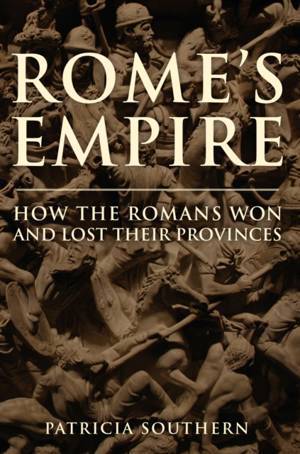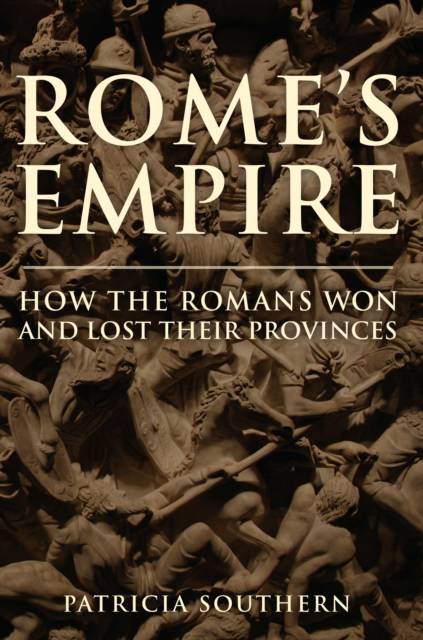
- Afhalen na 1 uur in een winkel met voorraad
- Gratis thuislevering in België vanaf € 30
- Ruim aanbod met 7 miljoen producten
- Afhalen na 1 uur in een winkel met voorraad
- Gratis thuislevering in België vanaf € 30
- Ruim aanbod met 7 miljoen producten
Zoeken
€ 48,95
+ 97 punten
Omschrijving
The Roman Empire was forged in war and defended by military might. It also endured because of the Romans' ability to assimilate and pacify the different peoples and cultures within their provinces. In Rome's early years it did not annexe territory but created alliances, first with the Italian tribes and then with the leaders of outlying states. Some territories were won without waging war, through rulers who had grown close to Rome. And Rome realised that it profited from these territories, with their agricultural produce, minerals, manpower for armies, slaves, and routes for trade. Government of the provinces was tailored to the character of the lands and people. Unfriendly peoples beyond Rome's boundaries represented a threat that Rome could now tackle on behalf of those within its sphere. Warlords could be conquered, but they could also be bribed. Native gods were equated as far as possible with Roman ones. Many diverse languages, customs and religions continued under Roman rule. Provincials could rise in status and become full Roman citizens, while inhabitants of towns and cities governed themselves, under the army's military umbrella. Only groups with such widespread influence that they challenged Rome's authority were then, often ruthlessly, targeted. The Druids and the Christians were among them. The history of Rome's Empire is therefore shown to be more complex and impressive than that of a military superpower imposing 'Pax Romana'.
Specificaties
Betrokkenen
- Auteur(s):
- Uitgeverij:
Inhoud
- Aantal bladzijden:
- 544
- Taal:
- Engels
Eigenschappen
- Productcode (EAN):
- 9781445694320
- Verschijningsdatum:
- 15/09/2023
- Uitvoering:
- Hardcover
- Formaat:
- Genaaid
- Afmetingen:
- 163 mm x 240 mm
- Gewicht:
- 893 g

Alleen bij Standaard Boekhandel
+ 97 punten op je klantenkaart van Standaard Boekhandel
Beoordelingen
We publiceren alleen reviews die voldoen aan de voorwaarden voor reviews. Bekijk onze voorwaarden voor reviews.











